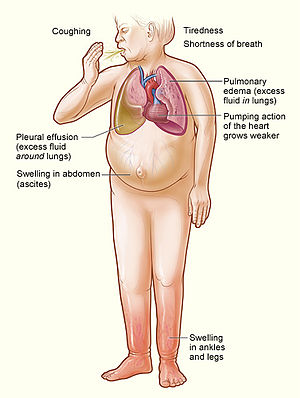
The prevention of heart failure is a healthcare priority, and in 2005 researchers from Ireland launched a trial to test a strategy that used brain-type natriuretic peptide (BNP) to identify candidates for intensive management of risk factors.
The strategy cut risk of left ventricular dysfunction of heart failure during four years of follow-up when compared with standard primary care management (5.3% (37/697) v 8.7% (59/677); ods ratio 0.57, 95% CI 0.38 to 0.86).
In the intervention group, adults with high concentrations of BNP (=> 50 pg/mL) were referred for specialist management including a Doppler echocardiogram, optimisation of drug treatments, and coaching by a nurse who targeted risk factors, encouraged adherence, and gave lifestyle advice. All participants had cardiovascular risk factors, most commonly hypertension and lipid disorders.
Recruitment was slow, and the authors had to change their combined primary outcome half way through to improve power. Only a few patients in either group developed symptomatic heart failure, so the primary findings were mainly down to a reduction in asymptomatic ventricular dysfunction.
It is argued that the next generation of trials will need to be much bigger and more efficient. Researchers and clinicians need to know whether complex interventions like this can prevent symptoms, improve exercise capacity, or prolong survival, and whether they can do it cost effectively on a large scale.
Source: JAMA 2013;310:66-74.

